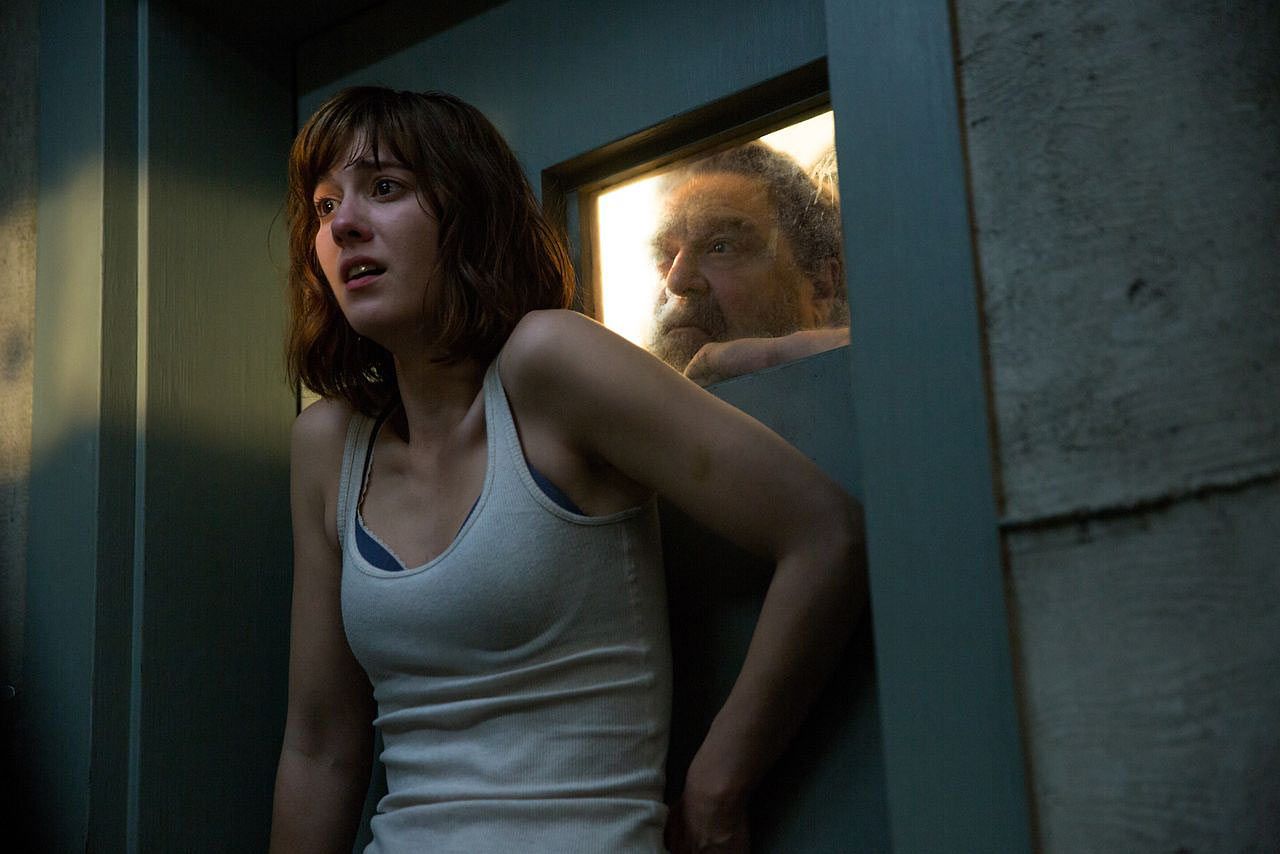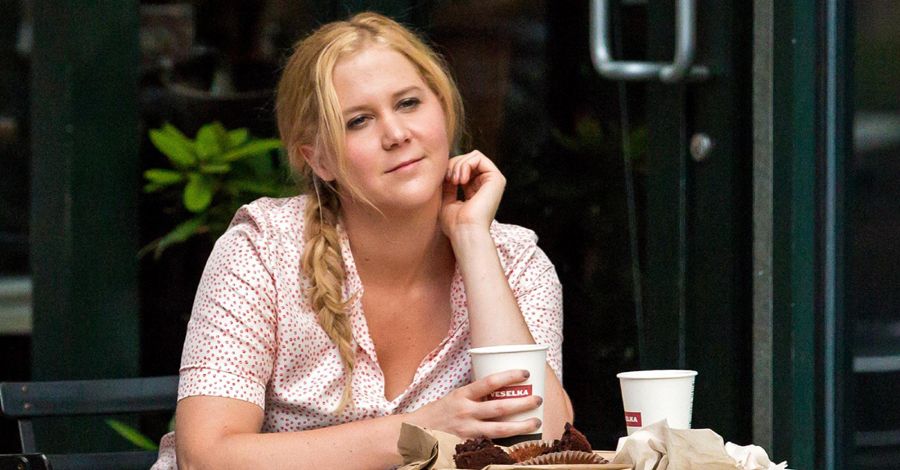When SPINOFF sat down with Elijah Wood at SXSW to discuss "The Trust," his stylish new crime thriller co-starring Nicolas Cage, I also brought up Roger Ebert's famously scathing review of his 1994 comedy "North." That led to an in-depth discussion of the value and ethics of criticism, and the Internet-spurred changes to the relationship between critics and filmmakers.
We'll bring you more from SXSW about "The Trust," including the time a body was found on location. For now, however, here's Wood on contemporary film criticism's highs and lows.
Spinoff: Roger Ebert infamously hated "North" --
Elijah Wood: He did. He totally hated it.
I'm curious what your response to that is and, by extension, your opinion of film criticism?
Wow.
It's a big question.
That's a much larger conversation, I think. But I remember when the film came out, and not necessarily Ebert's review specifically, because there were a lot of negative reviews. There were a lot of negative reviews of the film that hated it. It didn't do well, and it wasn't received very well. I think some people got it.
Yeah! I remember as a kid loving that movie and being very perplexed by the animosity for it.
I haven't seen that movie in a while, but upon revisiting it, it's a very charming film. I think [Ebert] didn't see that. I think he thought it was almost mean-spirited. I haven't read the review in a long time. I do remember it. I feel like he thought it was stupid, but I think he also thought it was mean-spirited in the sense that is was about a kid that wanted to divorce his parents, and wanted to be a free agent. I didn't find that at all.
But I think the overall notion of film criticism, we're at an interesting time for that. I think criticism back then -- I don't know -- things were held at a different standard. It was written reviews pre-Internet. The Internet has allowed for anyone to be a critic. I think that has had both good results and negative results in the sense that anybody can say anything. I think the level of criticism or the standards for criticism [have changed]. Like, occasionally I'll read a review and I'll see, like, grammatical and spelling errors and that shit drives me crazy. I know that has nothing to do with film criticism, but it's just I don't think some of those standards apply as much anymore because anybody can start a blog and anybody can say anything.
It's evened the playing field; it means that everyone can have an opinion.The separation between the audience and the critic has diminished as a result as well. I think that's interesting. I don't know. I think there are people that are upholding the standards very well. There are certainly journalists that I really admire. And in some ways the informality of it I like too, despite the fact that I think it comes with a cost. There's an informality of those people also just being in that world, filmmakers and journalists alike just spending time together and knowing each other and having mutual appreciation. I certainly have that. I know Amy Nicholson and Devin Faraci and Eric Vespe. These are friends, people who I genuinely like a lot and whom I spend time with at festivals. So I see it from that perspective too. It's a complicated thing to talk about.
Film critics get a lot of flak, and they are certainly some filmmakers who have had some very negative things to say about critics. My perspective is as long as there isn't a personal attack -- I think that's where I really struggle with some of the informality of the way criticism is now. The notion of pulling someone out and singling them out in a personal way in the context of a film review I think is poor journalism. I think it's unethical and I think it's unnecessary. You don't need to attack people. Do you know what I'm saying?
I know what you're saying. Do you have an example in mind? I do, but I don't want to speak on your behalf.
Well, this is fresh in my mind because there was a review for "10 Cloverfield Lane," Thrillist reviewed it and it was a good review, and it cited Mary Elizabeth Winstead's performance as being really strong. So she retweeted it. And I can't remember the journalist's name --
I know who you mean, Jeff Wells.
So he replied to that post and then called her performance out for being poor, and that she was acting through it and not being genuine. Now that's fucked up for two reasons: One, as a journalist what the fuck are you doing engaging with someone directly on Twitter and calling them out and shitting on them for? Two, it totally denigrates your job as a journalist, and the standards which you should have, and the ethics I think you should try to uphold within the context of film criticism and film journalism. It's so gross and so improper, and completely unnecessary.
So you didn't like her performance? Fine. You can totally write that in a review. And there's a way to say that that isn't personal. Like "it didn't work for me" or "I found within the confines of the film it wasn't as genuine as I would like." Whatever. There's a way to articulate it that doesn't shit on somebody in a really personal way. I find that really offensive. And I think that's where the Internet and Twitter and this sort of divide between the creators and the critics getting smaller has problems. That's where things are problematic, because you can just go on Twitter and sort of say something and spew it out. And there's a little bit of a distance. There's a sort of arm's length distance where you've set to the result to that it ultimately will have. You don't have to see her face. You don't have see her reaction or how that might hurt. And I think that's a bummer.
To her credit, she responded --
Fucking awesome! "Was I also too fat for you?" or something like that?
Do you know what that’s in reference to?
'Cause he called her fat in a film?
Are you fucking kidding me?
That's what he does.
What does that have to do with film criticism?
He said Amy Schumer wasn't good-looking enough to be in her own movie.
That's really hurtful. I'm also a firm believer in "if you can't say anything nice, don't say anything at all" unless it's constructive. That's just me. I don't want to shit on people if I have the forum to do it. I just think that there comes with that position such a sense of responsibility, human responsibility in addition to a responsibility to good journalism and good writing and interesting critique.
Film criticism can be extraordinary. It can be a great place to constructively and actively think about the film process, and to think about a movie in a way you hadn't imagined that you'd ever think about it. It can be great. There some reviews where I'd seen the film then I read the review and it made me think about the film in a different way. That's awesome. It's that shit that I have absolutely no time for. But it's not even a film criticism or journalism issue. It's an internet issue too. It's happening culturally all over the Internet and outside of the realm of film criticism. It's a little bit of a bummer.
As someone who works on the Internet every day, I agree.
I mean, look at something like Gamergate and how people can harass people in that regard. It's a volatile place. And everyone has a voice, so in addition to great people being able to use that as a platform to push forward great ideas and positive things. It's also an even playing field, so negativity can spread too.
Absolutely. Fun fact, though: Schumer took his criticism and turned into the basis of "12 Angry Men Inside Amy Schumer."
Which was absolutely brilliant. That piece was incredible.
So she came back with a great response too.
Totally.
"The Trust" made its world premiere at SXSW.




